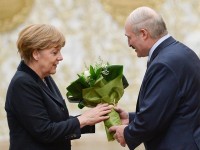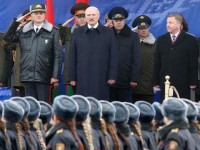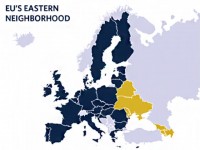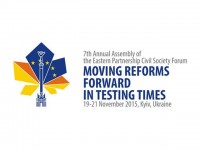Minsk’s muddled media clampdown could jeopardize warming of relations with the West.
Andrei Yahorau: Authorities don’t realize how to change the system of administration

This opinion shared in the talk with the EuroBelarus Information Service the director of the scientific - research organization Centre for European Transformation Andrei Yahorau.
“We have been talking about state machine reduction for a long time. And these talks have been going on not only in the independent Belarus. The reduction of state machine was a traditional problem in the functioning of the Soviet system”, - noted the interlocutor.
However, the reduction itself has nothing in common with the reformation of the state administration, highlighted the expert. “As to reduce costs and try to make the costs of the administration cheaper at the expense of stuff reduction is one thing. Another thing is structural reorganization of the control system, when both the bureaucratic establishment of the Ministries and the general way of management organization in the country are changing”, - said Andrei Yahorau.
The expert believes the latest statements of Aliaksandr Lukashenka on this subject to be populist rhetoric with the implication “to reinforce and to intensify”: “Intensification and higher productivity are the slogans that don’t carry anything in the understanding of what should be done and in which direction the system should be changed”.
The interlocutor of EuroBelarus assumes that the reformation process of the government system should depend on the direction in which the country is going to move and develop. “And as there is no sensible movement and comprehension of what Belarus should represent in 20 or 50 years, then all the management is carried out not according to this line, but depending on the situational problems which appear in the economics, social life, politics and so on”, - stated the political scientist.
In order to solve different situational problems government system in the shape of a tough line of command has formed in Belarus, permitting it to carry out clear administrative commands from above, explained the expert. “In such situation any reform of management except further centralization looks totally impossible. And centralization has already reached its limit. That is why it is unclear what sense is put in the reduction of the Ministries’ personnel except resource saving”, - he said.
It is with the desire to save resources that yet another attempt to reduce state machinery is explained. “Belarus has an ultimate lack of budget funds for the development. And we have possibilities to keep the economy at ground level. But in order to develop we need much more funds than are available for now. That is why authorities try to find means to maintain system existence, its minimal development by force of cutback on costs; costs on the state machinery as well”, - noted Andrei Yahorau.
Others
-
In Belarus, a rising fear: Will we be the next Ukraine?
The relationship between Russia and Belarus has never been an easy one. The two former Soviet republics have spent the last two decades on a roller coaster ride — sometimes allies, sometimes adversaries in heated public rows.
-
The EU’s Benign Neglect of Eastern Europe
Between November 6 and December 11, 2015, Carnegie Europe continued its Capitals Series. In this second phase, the focus was on the EU’s Eastern neighbors, which the bloc has so often zigzagged over in trying to establish a coherent policy toward them collectively or bilaterally.
-
New ENP and Civil Society’s Role in Focus of the 7th EaP CSF Annual Assembly (Photo)
The 7th Annual Assembly of the Eastern Partnership Civil Society Forum was held in Kyiv on 19-21 November attracting around 300 participants, observers and guests who attended more than 20 sessions and a Networking Fair in the framework of the Assembly.
-
Is social economy a phenomenon for Belarus?
The conference “Social economy: how to be successful despite the crisis” launched in Minsk on October 22.








Comments
From farewell to a new Eastern policy and towards a new development
Poland and Germany were both initiators and drivers of a New Eastern policy linked to the Eastern neighborhood and Russia/Soviet Union.